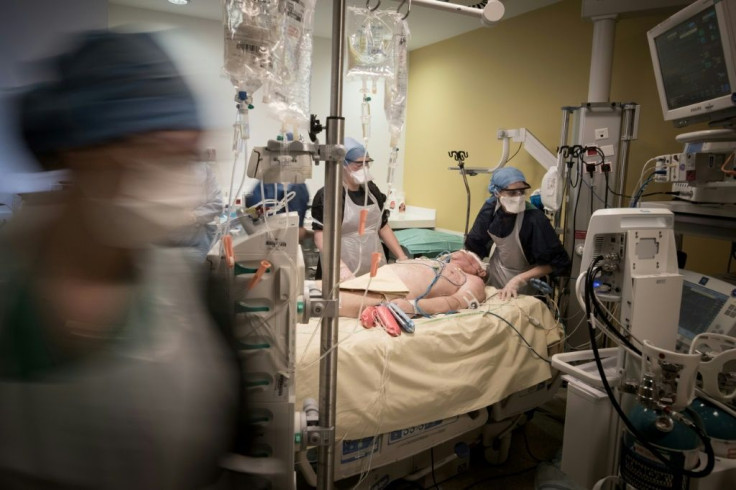Coronavirus Treatment: TB Vaccine May Prevent COVID-19 Deaths, Study Analyzes

KEY POINTS
- American researchers are recruiting healthcare worker volunteers for a phase 4 clinical trial named "BADAS"
- BADAS will see if the BCG vaccine can boost the body's immune response to increase the odds patients sick from COVID-19 can fight-off the disease
- It's intended to first protect healthcare workers from COVID-19
Developed 99 years ago, the Bacillus Calmette–Guérin (BCG) vaccine is famous for its widespread use against tuberculosis (TB). More than 100 million children every year have been immunized with the vaccine since 2004. Billions more people were vaccinated with BCG in the years leading up to 2004.
Scientists have known for decades BCG improves immunity against some viruses. It's been shown BCG has some effectiveness against Buruli ulcer infection and other nontuberculous mycobacteria infections. In addition, BCG is also used in the United States as part of the treatment for bladder cancer.
Now, a team of researchers from the U.S. will initiate a human clinical trial seeking to prove if this venerable vaccine can effectively rekindle the immune system to fight off SARS-CoV-2 (severe acute respiratory syndrome coronavirus 2), the virus that causes COVID-19.
This phase 4 randomized trial is called "BCG Vaccine for Health Care Workers as Defense Against COVID 19" or BADAS. Researchers involved in BADAS hope BCG can boost the body's immune response to increase the odds of patients, sick from COVID-19, fighting off the disease.
Involved in this urgent fight to develop this new vaccine are researchers from Texas A&M (which is sponsoring BADAS), with the Baylor College of Medicine, the University of Texas MD Anderson Cancer Center, Harvard’s School of Public Health and Cedars Sinai Medical Center as collaborators.
Teams from these institutions are recruiting 1,800 healthcare workers to vaccinate in trials that will test whether BCG can indeed be effective against SARS-CoV-2. The partners say they're not developing a cure, but a treatment that can be used almost immediately to protect healthcare workers in the frontline of the fight against COVID-19. They hope BCG can help decrease the number of people that are hospitalized or die from SARS-CoV-2.
“I’m very acutely aware that the longer it takes us to get this vaccine out … the more health care workers get exposed, get infected and get ill and the more people die,” said Dr Jeffrey Cirillo, PhD, a Regents' professor in the Department of Microbial and Molecular Pathogenesis at the Texas A&M College of Medicine. “We just don't have time. Every time we get a delay of a day or two, it matters.”
Apart from BADAS, there are two other active clinical trials also seeking to determine if BCG vaccination protects healthcare workers against SARS-CoV-2. One of these is BRACE, a phase III RCT being conducted in Australia. BRACE will recruit up to 4,170 healthcare workers to determine if the BCG vaccine reduces the incidence and severity of COVID-19.
The other is BCG-CORONA, which is another phase III RCT. This trial is being conducted in The Netherlands and will enrol 1,500 healthcare workers to reduce absenteeism among these frontliners with direct patient contacts.

© Copyright IBTimes 2025. All rights reserved.





















